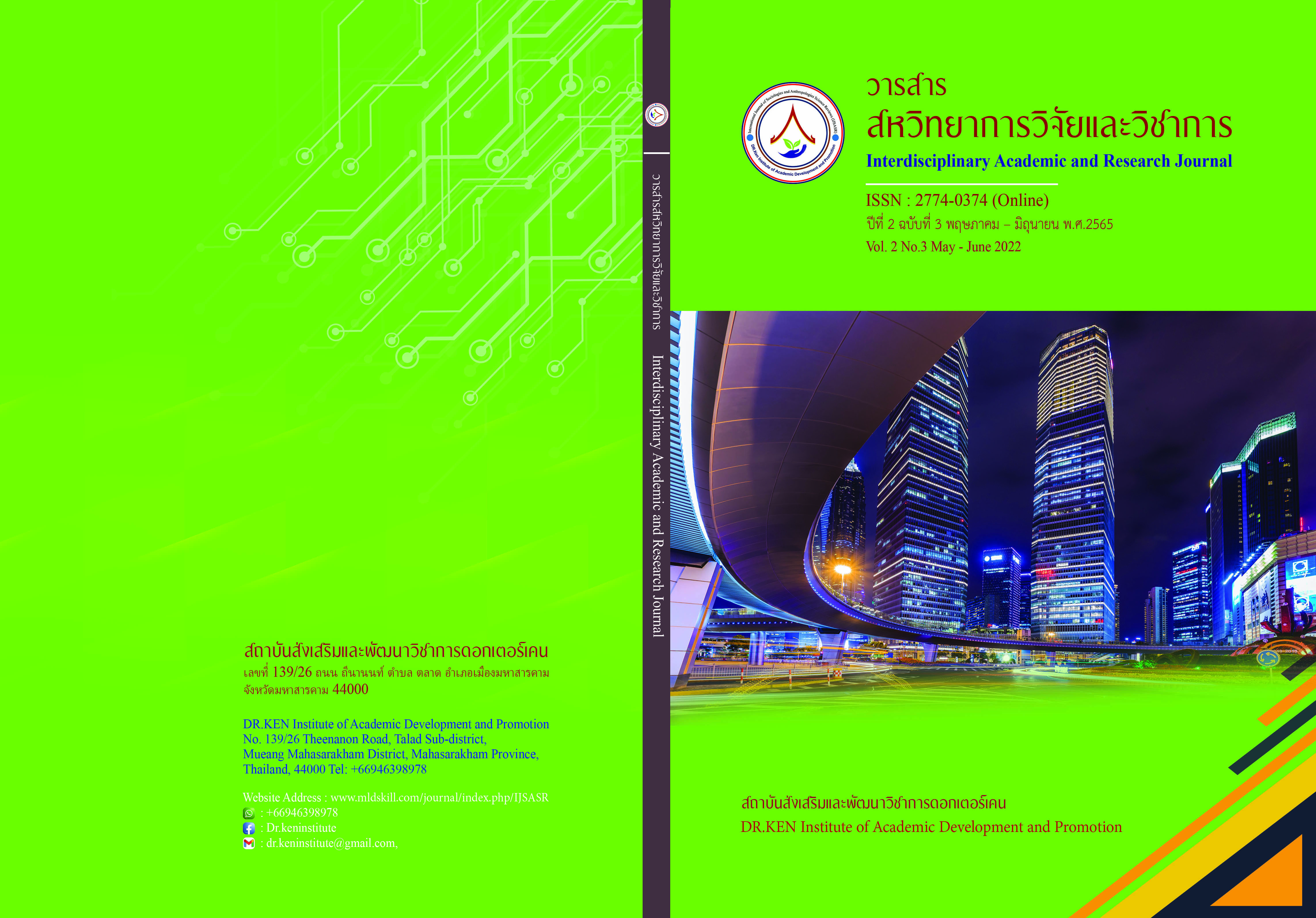The Influence of Religion in the Historiography of “World Civilization”
DOI:
https://doi.org/10.14456/iarj.2022.37Keywords:
Late antiquity;, International Relationship;, Muslim; , World History; , CivilizationAbstract
The world since the scientific paradigm has been established as the dominant method to reach the knowledge, whereas religions were percept in opposition to science. However, this article dedicates to illustrating the problem of disenchantment in the historiography of World Civilization or World History. In the paper, I argue against the secularists who believe religions have been separated from the states and discouraged from the public sphere. This process began in the 19th century at the same time when the Western had constructed knowledge of the world through the study of World Civilization or World History that seemed substantial and natural. However, the World Civilization study is crucial to demonstrate the religious influence that has never declined from world politics since the Treaty of Westphalia in 1688, which secularists believed. As can be seen from the evolution of the World Civilization concept that marginalized the Late Antiquity history (the 3rd - 6th century) and the history of Muslims (the 7th - 15th century), both cases have been considered the periphery of the European Middle Ages. In this article, I analyze through the historiographical approach and post-secularism ideology to expose the consistent impact of religions on the World Civilization concept's construction, even at that most significant time of secularism.
References
ธเนศ วงศ์ยานนาวา. (2562). ว่าด้วยเอกเทวนิยม. กรุงเทพฯ: สมมติ.
วัชระ สินธุประมา. (2559). “พัฒนาการของมโนทัศน์ ‘ประวัติศาสตร์โลก’ ในโลกตะวันตก”. วารสารประวัติศาสตร์ ธรรมศาสตร์, 3 (1), 79–137.
อานันท์ กาญจนพันธุ์. (2564). “ก้าวข้ามกับดักความเชื่อคู่ตรงข้ามในสังคมไทย”. ใน ก้าวข้ามวาทกรรมสู่พื้นที่ความรู้: จุดตัดของข้อถกเถียงทางสังคมศาสตร์. กรุงเทพฯ: ศยามปัญญา.
Alrababa’h, A., Marble, W., Mousa, S., & Siegel, A. A. (2021). “Can Exposure to Celebrities Reduce Prejudice? The Effect of Mohamed Salah on Islamophobic Behaviors and Attitudes”. American Political Science Review, 1–18.
Bowersock, G. W. (2012). Empires in Collision in Late Antiquity. Massachusetts: Brandeis University Press.
Crockett, C. (2018). “What is Postsecularism?”. American Book Review, 39 (5), 6–14.
Guha, R. (2002). History at the Limit of World-History. New York: Columbia University Press.
Humphries, M. (2017). “Late Antiquity and World History Challenging Conventional Narratives and Analyses”. Studies in Late Antiquity, 1 (1), 8–37.
Huntington, S. P. (1997). “The Clash of Civilization?” In “The Clash of Civilization?”: Asian Responses (pp. 1–37). Dhaka: The University Press Limited.
Marozzi, J. (2014). Baghdad: City of Peace, City of Blood : A History in Thirteen Centuries. Boston: Da Capo Press.
Masuzawa, T. (2007). The Invention of World Religions. Chicago, Ill: University of Chicago Press.
May, S., Wilson, E. K., Baumgart-Ochse, C., & Sheikh, F. (2014). “The Religious as Political and the Political as Religious: Globalisation, Post-Secularism and the Shifting Boundaries of the Sacred”. Politics, Religion & Ideology, 15 (3), 331–346.
Sachsenmaier, D. (2015). “The Evolution of World Histories”. In D. Christian (Ed.), The Cambridge World History: Volume 1: Introducing World History, to 10,000 BCE (pp. 56–83). Cambridge: Cambridge University Press.
Sattin, A. (2014). “Baghdad: City of Peace, City of Blood – ‘sublime beauty, unimaginable horror’”. The Observer. Retrieved fromhttps://www.theguardian.com/books/2014/jun/15/baghdad-city-of-peace-blood-review-justin-marozzi-sublime-horror.
Schwarz, T., & Lynch, C. (2016). “Religion in International Relations”. Oxford Research Encyclopedia of Politics. World Politics Online Publication Date: Nov. 2016 DOI: 10.1093/acrefore/9780190228637.013.122
Stavrianos, L. (1990). A Global History: From Prehistory to the 21st Century. New Jersey: Prentice-Hall.
Stearns, P. N. (2003). Western Civilization in World History. New York: Routledge.
Tambiah, S. T. (1990). Magic, science, religion, and the scope of rationality. Cambridge: Cambridge University Press.
Downloads
Published
How to Cite
Issue
Section
License
Copyright (c) 2022 Phanthip Petchvichit , Panadda Panitchayapan

This work is licensed under a Creative Commons Attribution-NonCommercial-NoDerivatives 4.0 International License.
Copyright on any article in the Interdisciplinary Academic and Research Journal is retained by the author(s) under the under the Creative Commons Attribution-NonCommercial-NoDerivatives 4.0 International License. Permission to use text, content, images, etc. of publication. Any user to read, download, copy, distribute, print, search, or link to the full texts of articles, crawl them for indexing, pass them as data to software, or use them for any other lawful purpose. But do not use it for commercial use or with the intent to benefit any business.
















.png)


